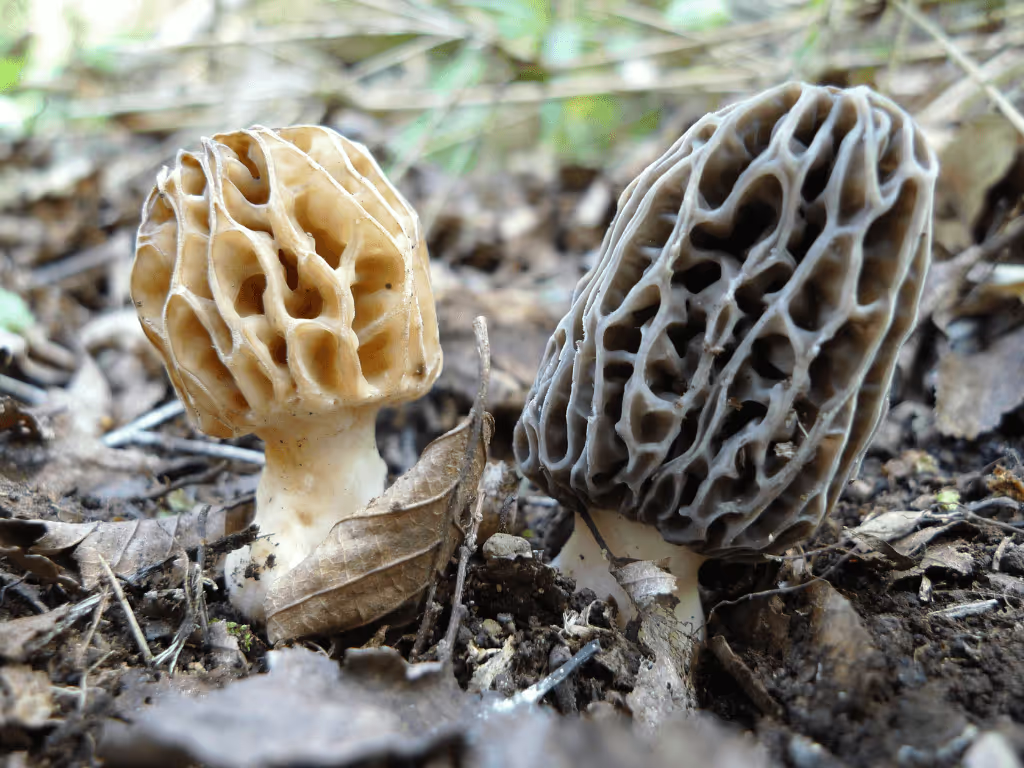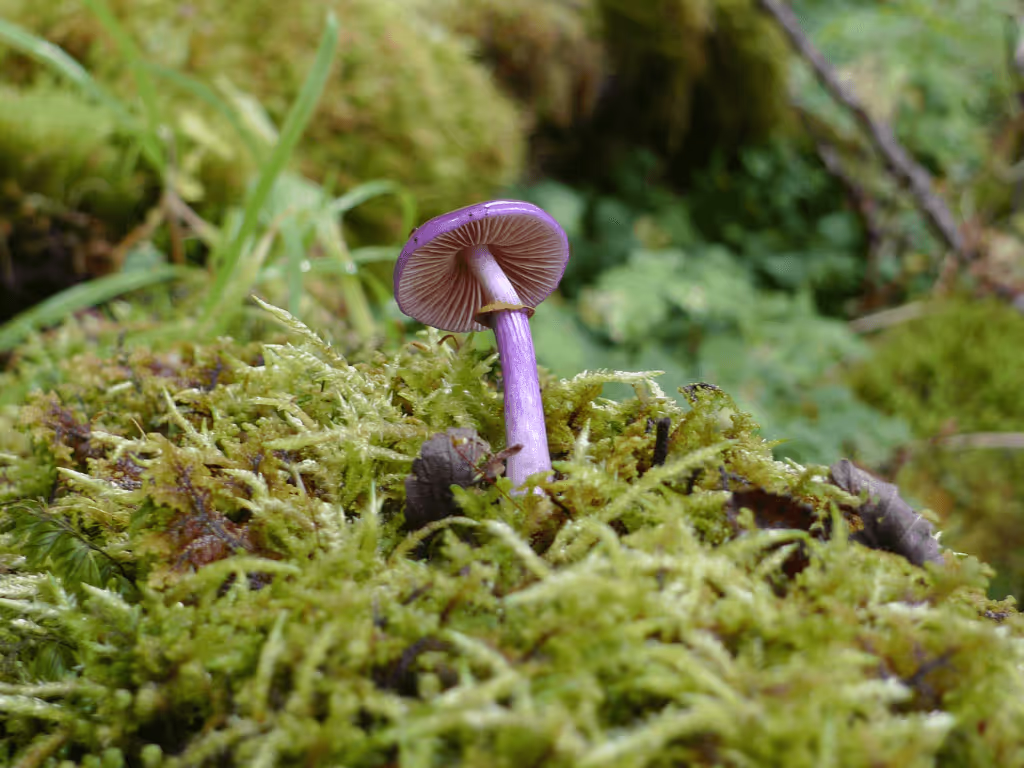"Fungal Conservation Pledge" is an initiative aimed at establishing fungi as an independent and prioritized kingdom of life within global biodiversity agreements.
October 16, 2024

FFungi Staff
FFungi Volunteer
Chile and the United Kingdom presentes a significant initiative at the Conference of the Parties to the Convention on Biological Diversity (CBD). Both nations joined forces at COP16 at the end of October, organized by Colombia, to introduce an innovative project: the Fungal Conservation Pledge. This declaration emerged from the collaboration between both countries and the Fungi Foundation, with the goal of establishing fungi as an independent biological kingdom in legislation and policies, and prioritizing them within multilateral biodiversity agreements.
"The purpose of this agreement is clear: to incorporate fungi into global conservation strategies and frameworks, highlighting the key role they play in combating climate change, biodiversity loss, and promoting sustainable economic development," says Chile's Environment Minister, Maisa Rojas.
Despite being essential for the functioning of ecosystems, fungi have historically been ignored or underrepresented in international biodiversity agreements. Their ecological roles are fundamental: they form symbiotic associations with plants,without which plants cannot survive in terrestrial environments; they decompose organic matter, forming soil; they sequester carbon; help filter water; and contribute to bioremediation, among other roles. Fungi are also crucial for the pharmaceutical, food, and agricultural industries, and offer new economic opportunities based on technologies derived from this biological group.
Defra’s Chief Scientific Advisor, Professor Gideon Henderson, says “Fungi are a critical part of ecosystem functions, providing key elements such as recycling of nutrients and carbon storage. But they are often overlooked in our focus to protect life on earth. That is why the UK is pleased to co-launch the Pledge for Fungal Conservation at COP16 so that we do not lose sight of this important resource. The Royal Botanic Gardens Kew are embarking on a groundbreaking initiative to sequence the genomes of thousands of these, which will allow scientists to understand the landscape of fungal diversity and unlock its potential for medicine,agriculture, and environmental restoration. There are around 160,000 known species of fungi, but this is only a small fraction of the 2.5 million species estimated to exist and research at Kew’s world leading fungarium will pay a key role in growing our future understanding”.
The commitment that Chile and the UK presented at COP16 aims not only to recognize the ecological relevance of the Fungi Kingdom but also to ensure its protection through concrete policies, ranging from local to global scales. At the heart of this initiative is the need to create a regulatory framework that facilitates the inclusion of fungi in biodiversity monitoring and protection systems, in order to achieve broader goals set out in the Kunming-Montreal Global Biodiversity Framework, adopted in 2022. Spain, Colombia, Mexico, Costa Rica, Peru, Ecuador, Cambodia, Benin, and Guinea, also supported the Pledge.
“The co-launching of this Pledge between countries currently referred to as being part of the Global South and Global North is, to date, the most significant achievement for the conservation of fungi. It will accelerate the full incorporation of fungi,which are neither plants nor animals, into national and international environmental treaties and frameworks, local environmental and conservation initiatives, and agricultural laws and policies. This will foster a hopeful vision for the conservation and the protection of nature. The Pledge also provides a solid foundation on which countries can build on to consolidate mycology as a crucial science and allocate the necessary funds to expand fungal research,” emphasizes the Chilean-British executive director of the Fungi Foundation, Giuliana Furci.
This commitment aligns with Chile's history of pioneering efforts in fungal conservation, with fungi being part of the country’s environmental legislation and Environmental Impact Assessments since 2010 and 2013, respectively. Chile is home to a great diversity of species, with more than 5,000 known, many of which are native and some threatened. In the context of the triple environmental crisis, the presence of fungi in ecosystems such as the Valdivian Rainforest is key for carbon sequestration, an essential process in the fight against climate change,and is also vital for local economies. For example, Ramaria flava, commonly known as “changle,” is a native edible species from central-southern Chile and is widely used in Mapuche gastronomy.
The UK, for its part, has been a pioneer in promoting fungal conservation at the European level and now, alongside Chile, will lead this effort on a global scale. The Royal Botanic Gardens, Kew, houses the largest collection of fungi in the world, including hundreds of specimens from which species have been named.
The Pledge was not included in this year’s agenda under item 16, therefore Chile made a statement during the final plenary session of the conference, inviting parties to submit detailed information on the conservation of fungi within the framework of the implementation of the Soil Biodiversity Action Plan. This information could then be considered at the intersessional meetings of the Subsidiary Body on Scientific, Technical, and Technological Advice (SBSTTA) leading up to the next COP17 of the Convention on Biological Diversity, where we aspire for the Pledge to be adopted by the UN CBD Secretariat.
We hope more countries will join this initiative, which seeks to prioritise fungi in national and international legislation, policies, and agreements through concrete measures.
About the Pledge
The “Fungal Conservation Pledge” seeks to call on the Parties of the Convention on Biological Diversity to commit to prioritizing the conservation of fungi within multilateral environmental frameworks and to advancing concrete measures in their National Biodiversity Strategies and Action Plans. The success of this agreement will depend on the political will of each nation, but also on international cooperation and the necessary funding to implement fungal conservation strategies that can mitigate the effects of climate change and biodiversity loss.
With this action, fungi are expected to no longer be the forgotten organisms in conservation efforts. Therefore, the collaboration between Chile and the UK will mark a milestone in the journey to ensure a sustainable future, where the Fungi Kingdom as a whole is valued and protected, ensuring an ecological balance indispensable for future generations.
Read the Fungal Conservation Pledge here.
